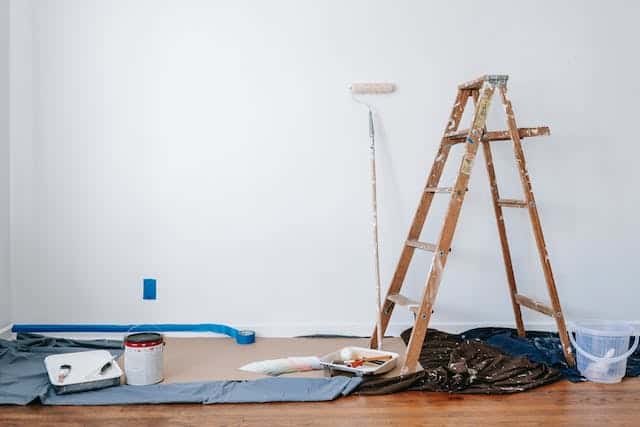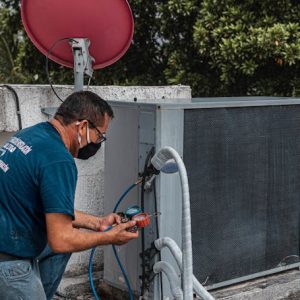Party wall agreements are a key part of any construction or renovation project. They are designed to help manage the relationship between property owners wherever construction work involves a wall, boundary, or structure that is shared between two or more buildings.
What Are Party Walls?
A party wall is a shared wall separating two adjoining properties, usually constructed along the boundary line. The best example of a party wall is the shared wall between terraced or semi-detached houses. These walls attach you to your neighbour not just physically, but legally too. This is where party wall agreements come into play.
What is a Party Wall Agreement?
So, what exactly is a party wall agreement? A party wall agreement sometimes referred to as a party wall award, is a legally binding document outlining the scope of the proposed works, as well as the rights and responsibilities of each neighbor. These agreements establish a framework that both neighbors must adhere to.
It’s crucial to obtain a signed party wall agreement before getting started with any construction or renovation work. This will protect your legal rights and prevent disputes with your neighbor but outlining agreed-upon procedures in advance.
Why Do Party Wall Agreements Matter?
Party wall agreements are absolutely vital for a number of reasons. Firstly, they proactively prevent disputes and conflict between neighbors. By clearly outlining the work that is being completed, as well as the rights and responsibilities of each neighbor, these agreements reduce the risk of anything going wrong further down the line.
Secondly, party wall agreements are a safety measure. By enlisting the help of a party wall surveyor, you will ensure the structural integrity and safety of all properties concerned during the construction phase. A party wall surveyor will carefully consider and assess the potential impact of the construction or renovation works on both buildings. This assessment will ensure that any alterations or structural changes made will maintain the stability of the wall.
Party wall agreements play a vital role in reducing the risk involved with potential damages and liabilities. By outlining the procedures, permissions, and obligations around the shared wall, these agreements help allocate responsibilities in the event of any unforeseen damages resulting from construction work.
Reaching a Party Wall Agreement
Step One: Initiation
The need for a party wall agreement is the result of proposed construction or renovation work that directly affects two or more neighbors. This includes building extensions, loft conversions, or excavation work near the boundary line.
When drafting the party wall agreement, you need to decide exactly what work you wish to undertake and make sure this is outlined clearly in writing.
Step Two: Inform Your Neighbour
The next step towards reaching a party wall agreement is to notify your neighbor of the party wall works. You can do this verbally, but be sure to also secure confirmation in writing.
To obtain a formal agreement, you should serve a party wall notice to the adjoining property owner detailing the works that will take place and the potential impact on the shared wall or structure. This gives your neighbour the opportunity to consent, dissent, or negotiate aspects of your proposal.
Step Three: Hiring a Party Wall Surveyor
In the event that the adjoining owner rejects your proposal or fails to respond within the required timeframe, both parties should appoint party wall surveyors. Each owner can either appoint their own surveyor, or they can both decide on a single agreed party wall surveyor to oversee the agreement impartially.
The Role of a Party Wall Surveyor
A party wall surveyor has several key responsibilities:
- Conduct an Initial Assessment: Your party wall surveyor will review the proposed plans and ensure they comply with legal requirements and standards.
- Create the Party Wall Agreement: A party wall agreement will be drafted, outlining the scope of the work, access rights, and any necessary safeguards for both parties.
- Site Inspections: Your party wall surveyor will conduct thorough inspections of the site to oversee the construction work’s progress, ensuring it adheres to the previously agreed-upon terms.
- Conflict Resolution: In the event of disagreements or unforeseen issues, the appointed surveyors facilitate discussions and help resolve disputes between the building owner and the adjoining owner.
Hiring a Party Wall Surveyor
Party walls are particularly common in built-up areas, such as London, where houses tend to be constructed close together, requiring the involvement of a qualified party wall surveyor in London.
When searching for a qualified party wall surveyor, consider their qualifications and their experience in handling similar projects. Membership within recognized professional bodies, such as the Royal Institution of Chartered Surveyors (RICS) often indicates a higher standard of professionalism and guarantees adherence to industry standards.
You should also seek recommendations or references from trusted sources (such as friends and family) who have previously appointed a party wall surveyor for their own property. There’s no better way to guarantee you’re getting a good service than receiving first-hand reviews.
Prior to finalizing arrangements, always discuss the surveyors fees, making sure you have a good understanding of the services you will receive for the amount you are paying. Failing to do so can result in unexpected costs further down the road.
To Conclude
By laying down clear guidelines and procedures that both property owners consent to, party wall agreements ensure a smooth process from start to finish. As well as being legal formalities, they also promote friendly relationships between neighbors, reducing the risk of construction or renovation work causing any disagreements.
If you’re planning on renovating your home, make sure you check local regulations and appoint a party wall surveyor to ensure you are following the best practices.




